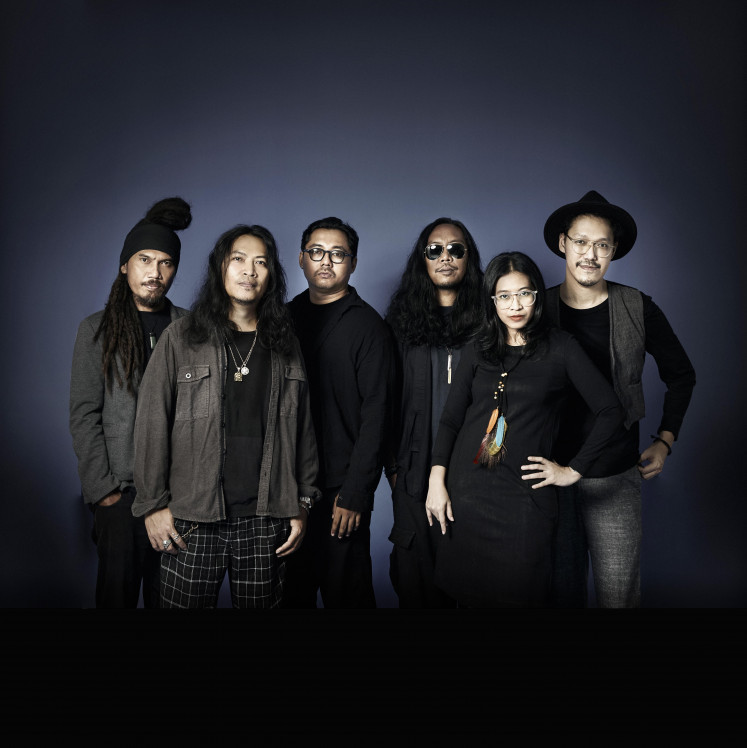How citizen journalism is a double-edged sword
Unlike entertainment TV shows or tabloids that have their own reporters and paparazzi to chase stories, Lambe Turah relies on tips from ordinary citizens.
Change Size
 In today’s digital world, social media plays a major role in the spreading of information and news, as well as gossip. (Shutterstock/File)
In today’s digital world, social media plays a major role in the spreading of information and news, as well as gossip. (Shutterstock/File)
L
ong before the infamous Indonesian celebrity Jennifer Dunn made headlines recently for being caught by the Jakarta Police for consuming crystal methamphetamine at her house, there was a video of her waiting in line in a mall, when suddenly a young woman pushed her from behind, pulled her hair and screamed at her, “I hate you so much! Why did you take my father away from me?!”
To give you some context, Jennifer is known to the public for having affairs with married men. The young woman in the video was identified as the daughter of a man with whom Jennifer was reportedly having an affair.
That video was later posted on the Instagram account @Lambe_Turah, a popular gossip account known for exposing scandalous stories of celebrities and high-profile individuals.
Unlike entertainment TV shows or tabloids that have their own reporters and paparazzi to chase stories, Lambe Turah relies on tips from ordinary people.
The account itself is set to private, yet at the time of writing, it has so far garnered 4.3 million followers. The account consists of amateur videos, screen captures and private pictures of popular figures, posted alongside tacky comments and hashtags.
In essence, the account Lambe Turah fits with the definition of citizen journalism as defined by oxforddictionaries.com: “The collection, dissemination, and analysis of news and information by the general public, especially by means of the Internet.”
In today’s digital world, social media plays a major role in the spreading of information and news. Everyone with a smartphone can become a citizen journalist nowadays.
On the flip side, however, citizen journalism creates another problem: privacy violations and online bullying.
“The ubiquitous use of technology — particularly social media — in everyday lives has enabled ‘action-at-a-distance' — an action that affects other individuals without physical or face-to-face interaction,” wrote Hendri Yulius in an article titled Homophobia from below: Everyone can be gay in Indonesia.
The account Lambe Turah has been blocked by Instagram numerous times, albeit temporarily, for violating the company’s terms of use. But what’s even more worrying is the account’s comments section, which is inundated with users spewing judgmental and mean rhetoric, and even arguing with each other.
Yet another case of citizen journalism-gone-wrong is the CELUP case, the now-defunct Instagram account made by a group of university students which encouraged social media users to take photos of couples showing public displays of affection (PDA). Not only did taking photos of others without their consent violate people’s privacy, it also encouraged internet users to act as the moral police.
When news about CELUP broke, people on the internet spent days and days discussing privacy issues and the rise of religious conservatism in Indonesia, with the majority voicing their disagreement about the movement.
If there is a silver lining to this CELUP case, it is that it paved a way for discussion on topics that people weren’t aware of or chose to ignore before.
Citizen journalism can certainly be an effective tool for raising awareness of important topics. One good example is the Instagram account @socialsymptom, which puts the spotlight on plagiarism by local Indonesian designers.
The anonymous user behind the account posts side-by-side photo comparisons of two similar outfits from different fashion brands, complete with a snarky caption. Sometimes they go as far as calling out stylists and social media influencers directly.
Citizen journalism has its advantages and disadvantages, but whenever you see something on the internet, remember this rule of thumb: Not everything posted on the internet is real and credible, and don’t say things on the internet that you wouldn’t dare say in the real world. (asw)
---------------
Interested to write for thejakartapost.com? We are looking for information and opinions from experts in a variety of fields or others with appropriate writing skills. The content must be original on the following topics: lifestyle (beauty, fashion, food), entertainment, science & technology, health, parenting, social media, and sports. Send your piece to community@jakpost.com. For more information, click here.









